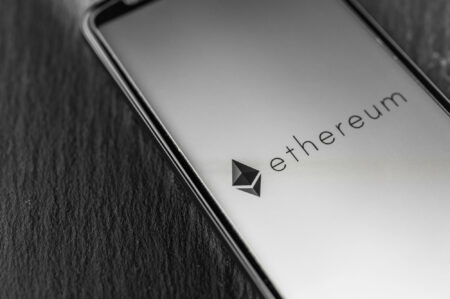What has been happening around Blockchain Technology and Cryptocurrencies this week? The most relevant local and international developments as well as appealing background reports in a pointed and compact weekly review.
The metaverse, a term for the gradual shift of our reality into the digital world, comes in many forms. The first phase began already with the introduction of social media and accelerated rapidly in the course of the Corona pandemic. Tech giants like Meta (formerly Facebook) see the next step as creating a virtual space that can be used as an alternative to the physical world through a wide range of interaction options. But immersive technology combined with a digital game world is not enough for a parallel universe of its own, says Sébastien Borget in an interview with CVJ.CH. The co-founder of The Sandbox, one of the leading metaverse projects, places an equally high value on permissionlessness, openness, interoperability and ownership of digital objects. The game developer wants to ensure these characteristics with the help of blockchain technology and non-fungible tokens (NFTs).
New, revolutionary technologies have regularly encountered resistance in the past. The Internet was a dubious development 25 years ago, computers were not taken seriously 50 years ago, and airplanes were considered a nonsensical means of transportation 100 years ago. Today, we face another disruptive technology that will bring fundamental changes to our financial infrastructure. Cryptocurrencies and the emerging field of decentralized finance (DeFi) are enabling permissionless access to blockchain-based financial applications for people around the world. Currently, an estimated $250 billion is being used in lending, borrowing, trading, and other decentralized finance applications. While growth is still held back by high complexity, poor user experience, and sometimes a lack of security, the advantages of decentralized architecture over today’s layered financial system are distinctive.
Blockchain technology is opening up new worlds in the digital space. However, the advantages of decentralized architecture come at the expense of scalability. The current broad user growth often leads to transaction congestion in the most popular public blockchains, resulting in excessive transaction fees. Due to the blockchain trilemma, the properties of scalability, decentralization, and security cannot be increased arbitrarily. An overview of the scalability problem of traditional blockchains and potential solutions.
A consensus is gradually building among international authorities that cryptocurrencies should be regulated rather than banned. This opinion is held by organizations such as the International Monetary Fund (IMF), the Financial Stability Board (FSB), and the Bank for International Settlements (BIS). Two notable exceptions are China and India. Both nations have issued bans against cryptocurrencies several times in the past. This week, however, the Indian regulator relaxed the existing decree. Instead of a complete ban, cryptocurrencies will be regulated as a separate asset class as long as they are traded as investment vehicles on domestic exchanges. However, Bitcoin & Co. will remain banned as a means of payment.
In addition: Exchange-traded securities that provide access to crypto assets are on the rise. In the U.S., asset manager Grayscale Investments, which manages about $50 billion in 15 different exchange-traded crypto trusts, dominates the field. Most recently, an investment vehicle for Ethereum competitor Solana (SOL) has been added to the lineup. Through the Grayscale Solana Trust, high-net-worth individuals and institutional investors in the United States gain access to another emerging crypto asset.
Selected articles in the weekly review:
Co-Founder of The Sandbox on their virtual gaming world where players can play, build, own, and monetize their experiences on virtual land.
Stablecoins play an essential role in the large potential unleashed by decentralized finanancial applications (DeFi).
Layer-2 solutions try to solve the problem of absurd transaction costs on decentralised blockchains such as Ethereum. An overview.
The government of India plans to regulate cryptocurrencies as a new asset class, but maintains strong restrictions, especially for payments.
Grayscale, the world’s largest asset manager for digital currencies, has added Solana to its portfolio for institutional investors.













